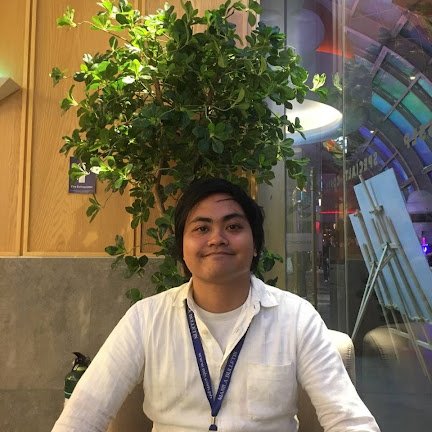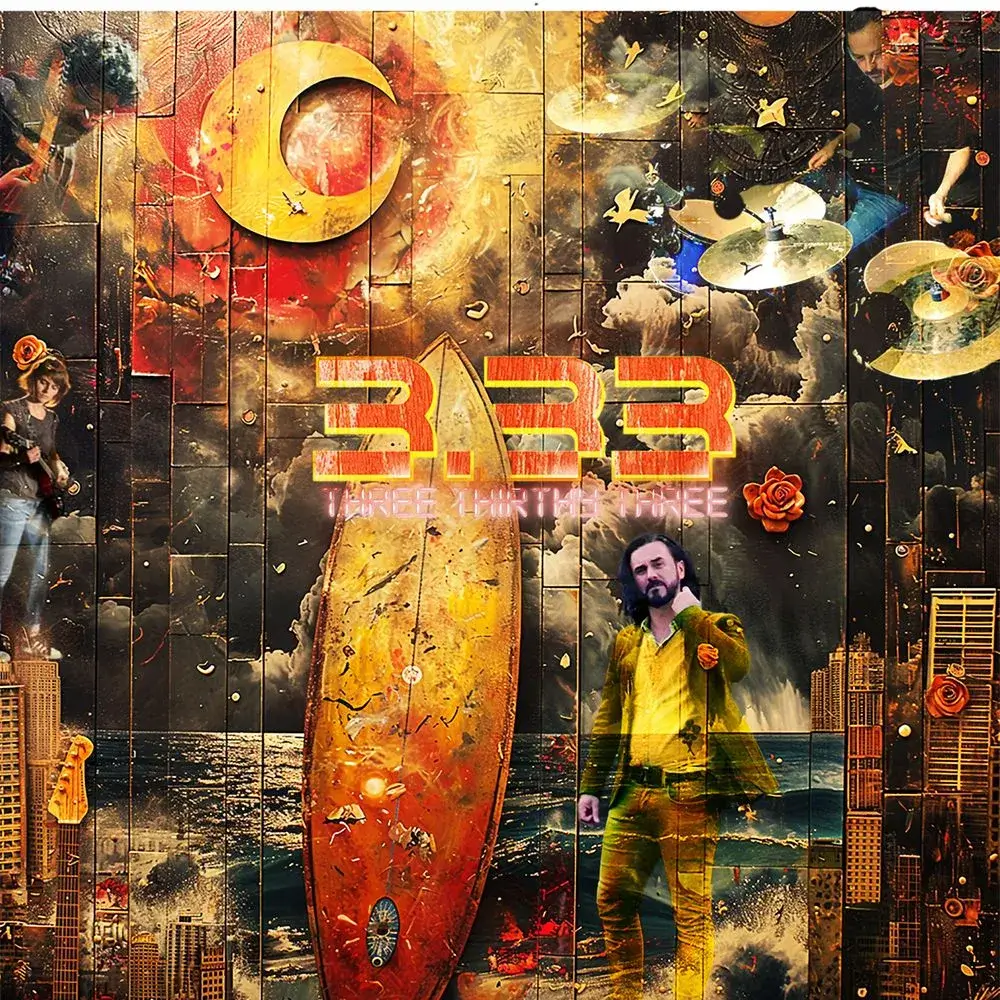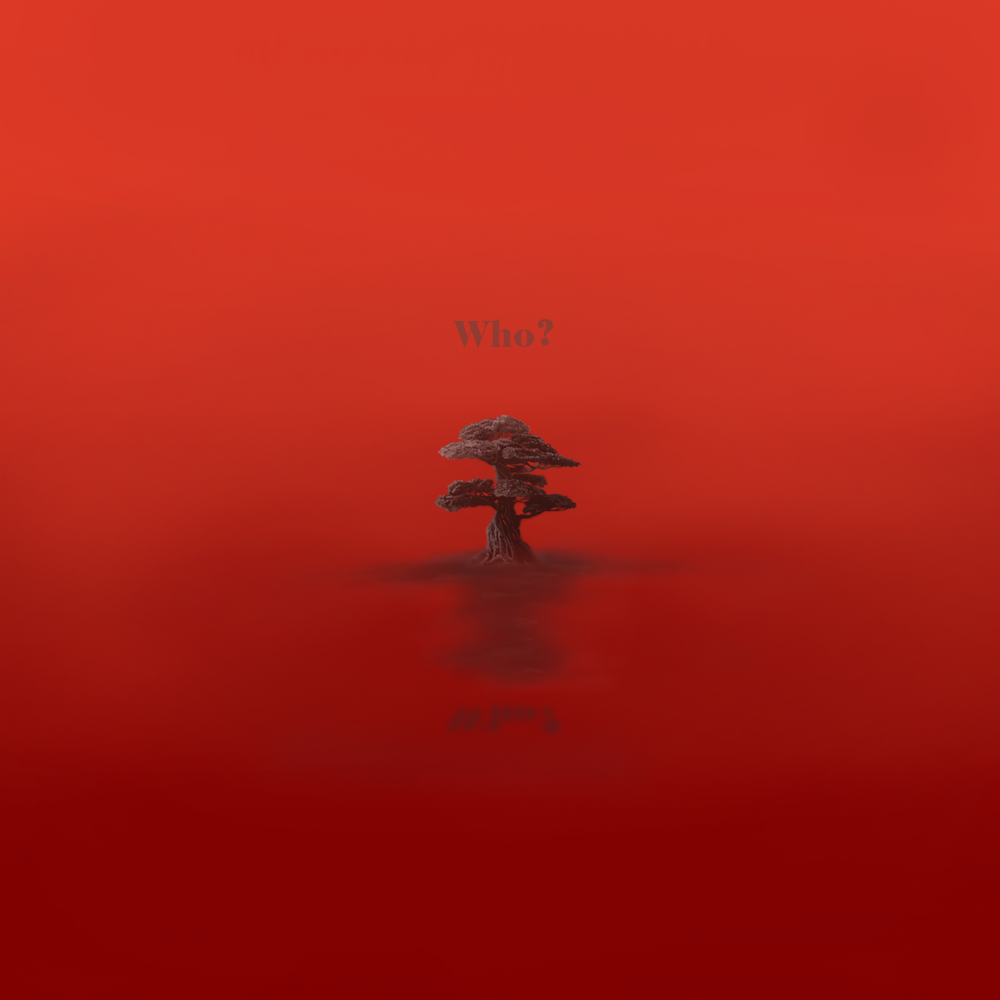LARJIMAR’s Metro Subterráneo is the sort of album that sounds like it should have been just another half-baked SoundCloud experiment. It’s the kind of thing you click on, hear a half-finished beat and some vague crooning, and never return to again. Instead, it lands as a surprisingly coherent, strangely hypnotic project. It takes Afrobeat grooves, drapes them over chill-trap skeletons, sprinkles in late-night melancholy, and never once buckles under the weight of its own ambition. The record doesn’t try to be Take Care or Trapsoul, but it’s definitely orbiting their planets. If anything, it feels like their scrappy cousin; the one who shows up with a simple cover, a half-empty bottle of rum, and more confidence than anyone expected, only to prove they might actually deserve a seat at the table.
The debt to the “sad-but-cool” school of R&B-rap is obvious. Drake opened the door, Bryson Tiller smoothed the formula, and PARTYNEXTDOOR occasionally wandered in when awake enough to write a hook. But where those artists often stumble, Metro Subterráneo thrives on looseness. It lets the beats breathe. The vocals don’t force gravitas, and the songwriting often feels as though it was half-improvised in the moment. But instead of sinking the project, that lack of polish is what gives it its charm.

The opener, Looking Back, makes the blueprint clear. Built on woozy chords and hushed delivery, it’s basically Bryson Tiller 101: late-night introspection, minor keys, and a hook that could double as an Instagram caption. Yet LARJIMAR resists the temptation to oversell. Tiller has a habit of reaching for climactic vocal runs that strain against the production, while LARJIMAR rides the track with a sort of studied nonchalance. The effect is smoother, almost effortless, as if the song doesn’t need to prove its emotional weight, it just settles into it.
That mood expands on In My Feels (I Get), a track that could almost pass as a lost cousin of Drake’s Marvins Room. Where Drake makes heartbreak cinematic, stretching vulnerability into melodrama, LARJIMAR lets it drift. The song feels humid, slightly blurred at the edges, like a subway car fogged up after a rainstorm. It’s messy, but in the way late-night honesty usually is, and it works because it doesn’t strain for your sympathy. It lets the listener sit in the haze.
Then comes Take My Time, the album’s most obvious flirtation with PARTYNEXTDOOR’s brand of lethargic cool. The vocals barely rise above a murmur, the lyrics wander without urgency, and the beat hovers just above collapse. It’s the kind of track that would feel disposable in lesser hands, but here the looseness feels purposeful. What keeps it alive is the subtle Afrobeat percussion laced beneath the trap drums, giving the whole thing a pulse PARTYNEXTDOOR often struggles to sustain. It’s the difference between vibing alone in a Toronto condo and vibing with friends on a Brooklyn rooftop where the heat radiates off the bricks.
Another highlight comes in Ferrocarril Samaná. This is where LARJIMAR’s Caribbean influences announce themselves fully. The track resists the moodiness of the opener in favor of celebratory, almost playful rhythms. It’s not just a genre detour; it’s a statement of identity. Too much of contemporary moody R&B risks blending into Toronto’s gray, monochrome aesthetic. Here, LARJIMAR asserts color, rhythm, and warmth; the parts of his musical DNA that keep Metro Subterráneo from being derivative.
If that track is the pivot, Booze Hit is the release. It’s the record’s purest party song, the kind PARTYNEXTDOOR has attempted repeatedly and rarely delivered. LARJIMAR succeeds precisely because he doesn’t overcomplicate it. The beat is reckless, the vocal energy infectious, and the whole thing feels like a sweaty room at 3 a.m. when no one’s thinking about the morning after. It’s a reminder that for all its introspection, Metro Subterráneo isn’t afraid to just have fun.
But the momentum is balanced by Ojos Mírame, a sharp swing back into intimacy. Structurally, it mirrors the Drake/Tiller cycle: deliver the banger, then pull the listener back into confessional space. Unlike Drake, though, LARJIMAR doesn’t inflate the intimacy into high drama. The track’s strength lies in restraint; a hushed delivery, minimal production, and enough space for silence to matter.
Finally, the record closes with Electrified Rail, an unexpected drill experiment. On paper, this shouldn’t work. Drake has been trying for years to graft his persona onto UK drill rhythms, usually with the awkwardness of an actor trying to master an accent on set. LARJIMAR simply drops the beat in without ceremony, and somehow it clicks. The aggression feels earned, a final jolt after the record’s emotional oscillations. It’s chaotic, but it ties into the album’s central metaphor of an underground ride: unpredictable, jolting, yet carrying you forward.
As a whole, Metro Subterráneo resists the temptation to over-polish. The casual, freestyled vibe sometimes veers into “maybe write a second draft” territory, but it never breaks the flow. What keeps it intact is a sense of self-awareness. LARJIMAR knows his lane: not trying to outsing Tiller, out-vibe PARTYNEXTDOOR, or out-grandstand Drake, but instead carving out a space where all those influences blend with his own cultural grounding. The result is a project that feels both derivative and distinct, stitched together by taste and personality.
In the end, LARJIMAR’s Metro Subterráneo captures something that too many artists in this lane miss. It understands that melancholy doesn’t have to be suffocating, that party tracks don’t need to be overproduced, and that influences don’t need to be disguised to feel authentic. It’s Afrobeat underpinnings, chill-trap atmosphere, Bryson Tiller coolness, PARTYNEXTDOOR looseness, and Drake’s melodrama stripped down to its bare essentials, but it’s also unmistakably LARJIMAR. That combination, unlikely as it sounds, makes the record not only listenable but surprisingly compelling.
Follow LARJIMAR
About the Author

A tenured media critic known working as a ghost writer, freelance critic for various publications around the world, the former lead writer of review blogspace Atop The Treehouse and content creator for Manila Bulletin.









